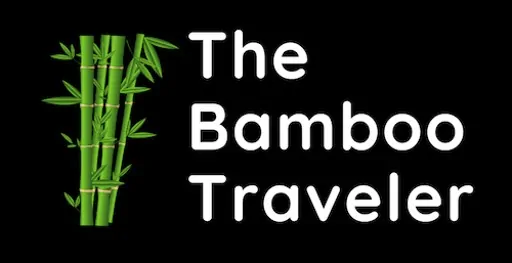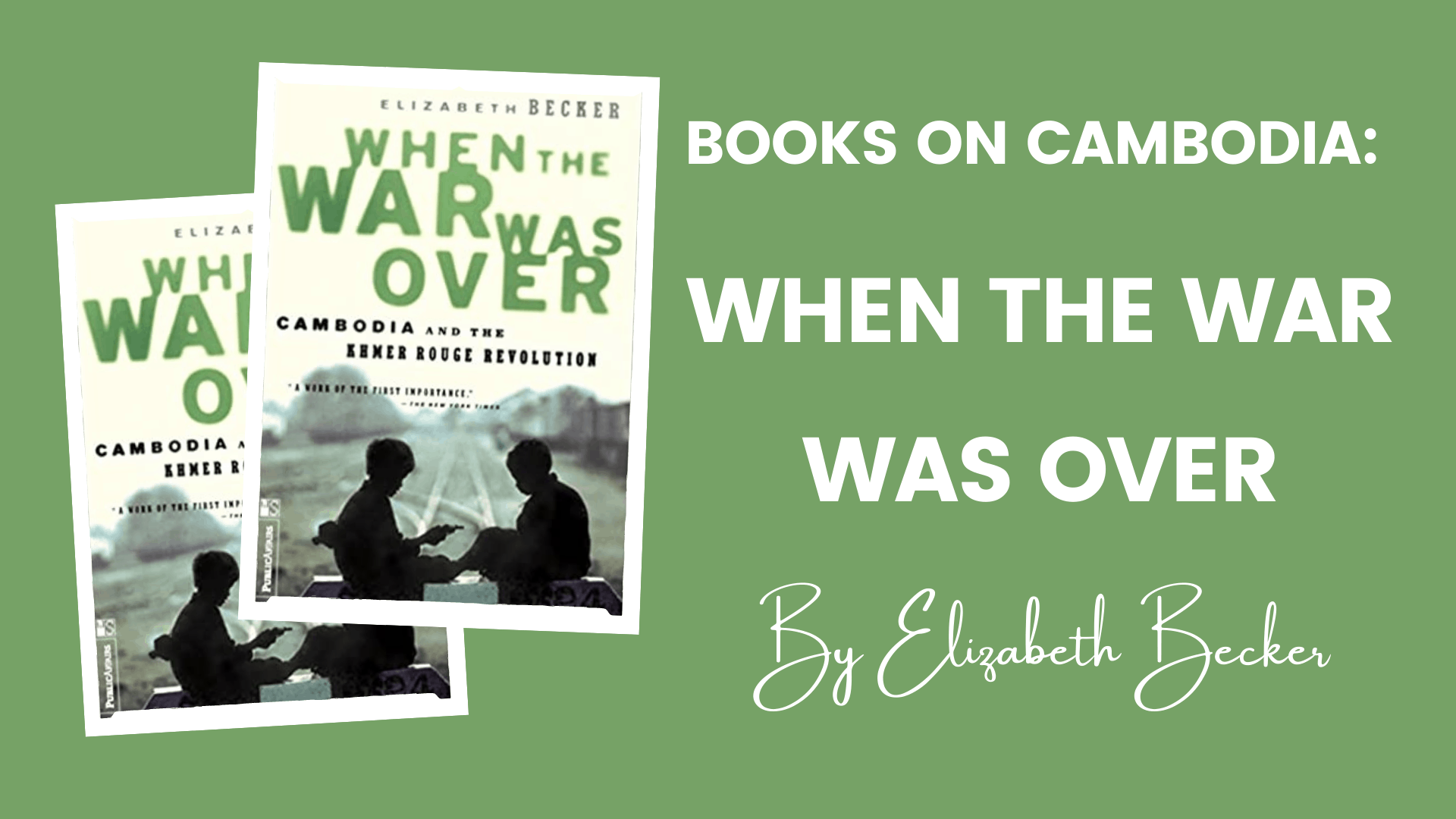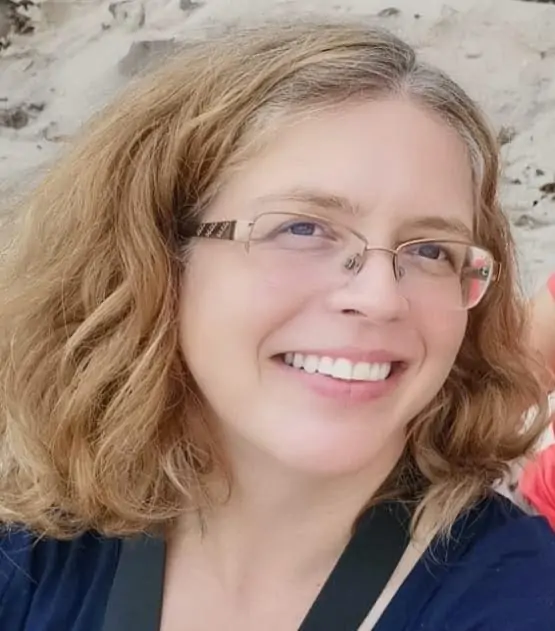Books on Cambodia
When the War Was Over
By Elizabeth Becker
Set in Cambodia from the mid-1800s to the 1980s
My Rating: 5 out of 5 stars
“There were countless other “Tuol Slengs” bloodying the country. There were prisons, execution sites, and pits. Work and murder, work and murder were the two certainties of Democratic Kampuchea…Fear was the primary instrument to keep the population under control.”
Disclosure: This post may contain affiliate links. As an Amazon Associate and Bookshop.org Associate, I earn from qualifying purchases. Please see this website’s Disclosure for more info.
I really, really wanted to read When The War Was Over (Amazon|Bookshop.org) when I was first traveling in Cambodia. But Amazon was charging more than I wanted to spend at the time. So, I didn’t buy it and chose a cheaper book that I wasn’t as excited about.
Fast forward a few years later and I bit the bullet and bought When The War Was Over.
Regret!
I don’t regret buying it.
I regret not buying it sooner!
THIS. IS. THE. BEST. BOOK. ON. CAMBODIA.
PERIOD.
If you want a book that can clearly and comprehensively lay out the events of leading up to and during the Khmer Rouge regime, then buy this book.
If you’re looking for a book to take with you when you visit Tuol Sleng Prison and the Killing Fields in Phnom Penh, buy this book.
For more books on Cambodia, check out my list of 25 of the best book on everything from the Cambodian genocide to Angkor Wat.
Summary of When The War Was Over
Let’s talk first about the author. In 1973, Elizabeth Becker started working as a journalist in Cambodia. She left in April 1975 when the Khmer Rouge took power.
However, toward the end of Pol Pot’s reign, she along with two other westerners were invited back on a press tour where she met Pol Pot and the second man in charge in Cambodia, Ieng Sary.
During the visit at that time, something unbelievable happened—one of the other people in her group was killed. You have to read the book to find out who and how it happened.
She went back to Cambodia after the Vietnamese invaded and overthrew the Khmer Rouge.
What does Becker cover in her book:
1. She briefly describes how the French colonized and ran Cambodia as well as the years under the Japanese during World War II.
2. She covers in detail the years after independence under Prince Norodom Sihanouk.
3. Then General Lon Nol overthrew Sihanouk. The detailed description of the corrupt, cruelty, racism, and ineptitude of Lon Nol is fascinating.
4. She describes at length the history of the communist party in Cambodia. You’ll learn about the power struggles, the party’s ups and downs, its paranoia, and its rationale for such actions as emptying Phnom Penh, starting a war with Vietnam, and executing so many party cadres.
5. The highlight of the book for me was reading about what was going on in the different regions of the country and why some regions were better off than others and why some people suffered more than others.
6. She gives some detailed anecdotal accounts of people who survived and some who didn’t. Using confessions from Tuol Sleng, she tells the fascinating story of what happened to a woman who used to work for a foreign aid organization, a banker, and a Chinese family.
7. You’ll learn about the ethnic cleansing that took place under both the Lon Nol and Khmer Rouge. Many people think that the Khmer Rouge just went after intellectuals like teachers, doctors, and engineers, but they also went after certain ethnic groups they didn’t like.
8. You’ll learn who the Khmer Rouge targeted and how they divided people into the ones they favored and the ones they found expendable. Here is a perfect quote from the book:
“If you keep this man there is no profit, if he goes there is no loss.”
9. What makes this book so valuable is that she explains why the Khmer Rouge were so cruel, inept, and paranoid and why in the end they lost.
10. Finally, you’ll learn about what was going on diplomatically between Cambodia, Vietnam, China, and the United States.
My Thoughts on When The War Was Over
I really loved this book. It helped me so much in understanding what happened in Cambodia at this time.
It’s an excellent companion to any of the memoirs on the Cambodia genocide like First They Killed My Father or Survival in the Killing Fields. Those books give you one person’s account of the events. This one lays out what happened chronologically over the whole country. Reading this book helped me make sense of what happened in the memoirs.
Both are necessary reads. One gives you a human perspective. The other gives you a holistic, political perspective.
Another reason why I loved When The War Was Over is that it gives me a tool to use to evaluate other similar situations around the world. You can look at certain characteristics of the Khmer Rouge to identify other countries that might go down the same rabbit hole as Cambodia did. Here are just some of the characteristics:
- A disdain for expertise
- An irrational adherence to an ideology even when it’s not working
- A belief in conspiracy theories that there are people from within the government trying to sabotage one’s efforts
- An obsession with being the greatest country in the world
- The idea that the country is so inherently great that it can succeed alone
- The idea that other countries are intent on harming it or taking advantage of it
- A prioritization of the economy over lives
- Targeting certain groups of people as the enemy of the country; in Cambodia it was a person’s class background but also their ethnic background
- Dividing the country by giving certain groups more privileges than others so that you always have a group of people who are loyal to you and who will turn on the other group so that they can maintain that higher position
Is it easy to read?
Yes, it’s easy to read as long as you keep track of the different names of people and places that pop up throughout the history. I usually jot down the names of important people a notebook or my computer while I read.
Can something like the Killing Fields happen in your country?
One thing I disagree with Becker about is that she tried to blame the culture and history of Cambodia for what happened. She goes as far as citing Cambodian folktales as indicative of the Cambodian people’s cruelty toward each other during the time under the Khmer Rouge.
Until 2016, I thought that you could trace things that happened in places like Cambodia, Germany under Hitler, or China under Mao to the country’s history and culture. For example, there’s something about the German’s love of order and efficiency that resulted in Auschwitz and Birkenau.
But then 2016 happened and now 2020 and I’m pretty sure that what happened in Cambodia could pretty much happen anywhere. Maybe not the exact same thing but something as cruel, crazy, and destructive.
And then I thought of it even more and decided that something this heinous had already happened in the United States. Not once. But twice. The genocide of the Native Americans and the slavery of Black Americans caused even more suffering or just as much suffering as what the Cambodians went through. It didn’t happen in exactly the same way. But it was still cruelty and suffering inflicted on a group of people.
Conclusion
If you really want to learn about what happened in Cambodia, don’t hesitate in getting When The War Was Over.
My Favorite Quotes from When The War Was Over
“It is one thing to suffer to live, another thing to suffer only to die. I decided to give it two years. If nothing had changed I would commit suicide” Mey Komphot July 1975
“If you keep this man there is no profit, if he goes there is no loss.”
“If reality did not match Pol Pot’s expectations, the figure in charge of that reality had to be accused of sabotage.”
He [Sihanouk] said he remembered the words of his grandfather King Norodom: “An ancestral prophecy predicts that our unfortunate people will one day be forced to choose between being eaten by tigers or swallowed by crocodiles.”
Travel Posts on Cambodia
- Cambodia Itinerary: An Ideal Guide for Temple & Island Hoppers
- An Angkor Wat Itinerary That Will Delight History Lovers
- Phnom Penh Itinerary: The Perfect Guide for History Lovers
My Favorite Book on Cambodia
Here is a list of more of my favorite books on Cambodia:
- Survival in the Killing Fields – By Haing Ngor (the movie The Killing Fields was based on the book)
- When Broken Glass Floats – By Chanrithy Him
- A History of Cambodia – By David Chandler
- Pol Pot: Anatomy of a Nightmare – By Philip Short
- First They Killed My Father – by Loung Ung – read my review
- Lucky Child – By Loung Ung – read my review
Get FREE trials of my favorite Amazon products:
- Kindle Unlimited – I have a subscription to Kindle Unlimited just for all the free Lonely Planet guidebooks. You get FREE books and magazines including Lonely Planet books with a 1-month FREE trial.
- Audible – Audible is amazing for those who need something to listen to while going for long walks. You get 2 FREE books with a FREE one-month trial.
- Amazon Prime 30-Day FREE Trial – I was an Amazon Prime Member for years (I’m traveling full-time now so it’s not so useful). I loved its free shipping and its Amazon Prime movies and TV shows (Mrs. Maisel, Bosch, and Expanse).
- Prime Student 6-month FREE Trial – If you have a university email account, you can get an even better deal with a FREE 6-month trial of Amazon Prime.
More Books from Around the World
- 10 Books on Singapore
- 10 Books on Malaysia
- 13 Books on Myanmar
- 25 Nonfiction Books on China
- 27 Fiction Books on Japan
- 15 Books on Korea
- 25 Books on Thailand
- 25 Books on Vietnam
- 20 Books on Sri Lanka
- 15 Books on Indonesia
- 25 Books on Cambodia
- 15 Books on Guatemala
- 16 Books on the Ancient Maya’
- 10 Books on Russia and Vladimir Putin
- 35 Books on Ukraine
- 25 Books on Ecuador
- 25 Books on Panama






0 Comments